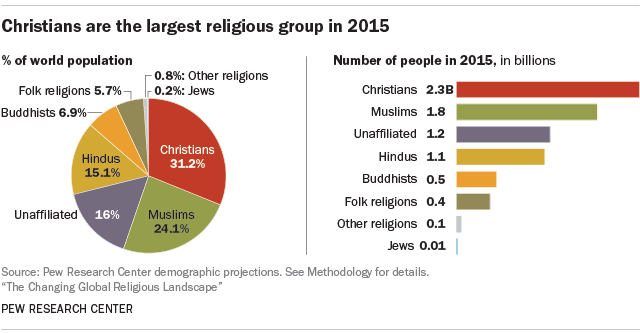The book surveys the journey of humankind from its animal existence to the point where humans have gained the knowledge to be like gods — by possibly engineering immortality or engineering beings which are superior to humans. This is his trajectory of history, i.e., if not eclipsed by an ecological collapse. This prediction or anticipation may be true, but as a human animal, it does not have the same interest for me as does my present animal nature. To survive as animals, humans need the necessities for a living organism to maintain its life: food, water, shelter, temperature, oxygen, tools. And as Peter Kropotkin put so well:
mutual aid from others. As hunter-gatherers, humans from primeval times, as well as some current indigenous people, are supplied with these necessities through access to subsistence land. Such people lived in group of no more than about 150 families (
Dunbar’s number).
Harari correctly recounts that humans underwent a Cognitive Revolution — his name for the evolutionary stage in which it became possible and actual for humans to acquire language, and this was followed by the subsequent stage of learning how to grow food and to herd animals — which can be called, as does Harari, the Agricultural Revolution.
Here Harari could have learned from Herman Nieboer’s Slavery: As an Industrial System (1900), that agricultural activity (and also “agricultural” fisheries) lend themselves to the rise of slavery through conquests. He could also have learned from Franz Oppenheimer’s The State, that these larger grouping of people, which we call States and Empires, are all the results of conquest. All subsequent history is, from this political perspective, a morphing of slavery, to serfdom, to wage-slavery. And, as Marx pointed out correctly, there is a correlation between these stages and the stages in the means of economic production.
So, my concern with history is the question: how did it transpire that I am a wage-slave? And how can I and others get out of this predicament?
This, however, is not Harari’s primary concern. His concern is a cognitive one: what made possible the Scientific Revolution and the prospects of Homo Deus?
Well, one ingredient is leisure. And this is achieved by others doing the work of supplying the necessities (and luxuries) of life. And leisure is achieved through conquest and slavery, serfdom, and capitalism. [Incidentally, I find his analysis of capitalism as requiring credit correct, but inadequate by omitting a discussion of the necessity of a proletarian class, and omitting a discussion of what makes such a class possible.]
Harari sees the movement of history as strivings for empire, and he recounts for us the various empires that have existed. And he notes which factors contribute to the unification of an empire: money, religion, and technology. [I would add a political order which maintains either slaves, serfs, or wage-slaves.] And he anticipates (and welcomes) the coming of a world empire. [Empires tend to assimilate various nationalities (languages) into one nationality (language). Harari welcomes this unification; I do not.]
We can appreciate and marvel at the achievements of great States and Empires: the architecture, the roads, the canals, the viaducts; and today, the various means of transportation, means of communication, means of harnessing energy, and the myriad uses and and fabrication of resources. This is all the result of the Scientific Revolution (preceded by a Renaissance and Protestant Reformation) which was aided by the existence of leisure — in other words, by the private and public support of scientists and creative people. But at what price? Slavery, serfdom, and wage-slavery.
I suppose the difference between me and Harari is over the ancient question of whether the end justifies the means. He seems to be end oriented. I am, on the other hand, means oriented. The means I seek are free agreements.
But as far as the trajectory of history is concerned he may be right that humankind will suffer either an ecological collapse or create a Homo Deus.
Comment from ethicalzac:
May 27, 2020
I am so happy I discovered this site. I really cherish your insight but also enjoy Yuval Harari’s work. In my opinion I do not think Harari “welcomes the unification “(empire–consolidation of money and power, leaving people in its wake without agency).
What I think he’s saying is that if we (the rest of us) don’t come out with a new system or new stories that ultimately rehabilitate human agency then the stories (or narrative) of the status quo will win out. Consequently, the system will be churning out more and more useless people. That will live in a world handicapped by attachments, fiction and addiction. And that this world will be run by bullshit. Bullshit we witness everyday we turn the news on.
Harry Frankfurt made an awesome distinction between bullshitters and liars. The bullshitter has a selfish intention hidden at the core. While the liar does, in fact, know where the truth lies, the bullshitter doesn’t care,he has no conscious. Post Carter virtually all of the US Presidents were bullshit artists. Bush was woefully prepared to be one. But Clinton took the Gold. Obama the Silver and squirrel head the Bronze. (Trump was too old and showed cracks. Biden is coming across the same). All we have to do is stop this pathetic progression.
Reply by Chrucky: May 28, 2020
Thank you for the comment. In reply, I did not say that Harari welcomes any particular type of empire, but some kind of empire nonetheless. This is explicitly expressed under the heading “The New Global Empire.” (p. 207) His opening sentiments are the following: “Since around 200 BC, most humans have lived in empires. It seems likely that in the future, too, most humans will live in one. But this time the empire will be global. The imperial vision of dominion over the entire world could be imminent. . . .” From one perspective, this is just a prophecy, but it is a prophecy which he endorses. He could have said something to the effect that the United Nations — in some reformed way — should take charge. But this is not the route he recommends. And it is not clear what he does recommend.



